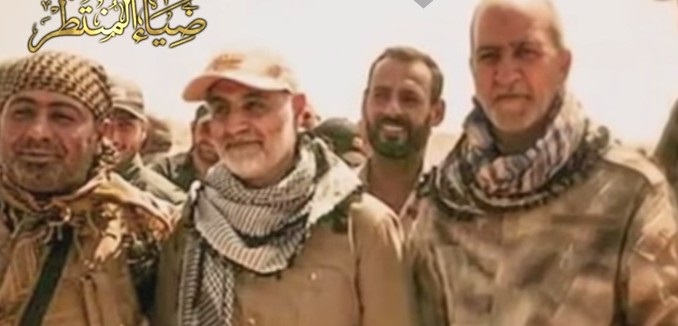Qasssem Suleimani, the general of Iran’s elite militia who is subject to UN sanctions and a travel ban, reportedly met this week with Russian leaders in Moscow for the second time in two months.
The Lebanese newspaper As-Safir, known as being sympathetic to the terrorist group Hezbollah, reported on Tuesday that Suleimani, who leads Iran’s Islamic Revolutionary Guards Corps and is designated as a terrorist by the U.S. government, visited Moscow to discuss strategy in Syria, whose regime is supported by both Russia and Iran. Western intelligence sources said last month that Soleimani had visited Russia to meet with President Putin and Russian Defense Minister Sergei Shoigu, despite UN Security Council resolutions making it illegal for Suleimani to leave Iranian soil.
The news of Suleimani’s visit comes amid increasing reports that Russia is increasing its military involvement in Syria. The New York Times reported that the Russian military has delivered to Syria six T-90 tanks, 15 howitzers, 35 armored personnel carriers, 200 marines, and prefabricated housing for up to 1,500 people, with more to come. “We have seen movement of people and things that would suggest the air base south of Latakia [a city on the Mediterranean coast] could be used as a forward air operating base,” Pentagon spokesman Capt. Jeff Davis said Monday. Reports have also surfaced indicating that Russian personnel and equipment arrived in Hama, Syria’s fourth-largest city, from Latakia on Monday.
Russian president Vladimir Putin said Tuesday that his country will “provide and will continue to provide military assistance [to Syria]. We call on other countries to join with us.”
“This is the most important Russian power projection in the region in decades,” Stephen J. Blank, an expert on the Russian military, told the Times. Haaretz military and defense analyst Amos Harel emphasized that increased cooperation between Russia and Iran, as indicated by Soleimani’s reported visits to Moscow, will give Syrian ruler Bashar al-Assad a better chance to survive. The Russian presence, Harel wrote, will force Israel to reconsider its regional strategy, as Russia’s increased involvement could constrain Israeli efforts to prevent the transfer of advanced weapons systems from Syria to Hezbollah in Lebanon.
[Photo: ضياء المنتظر | Diya Almantther / YouTube ]




